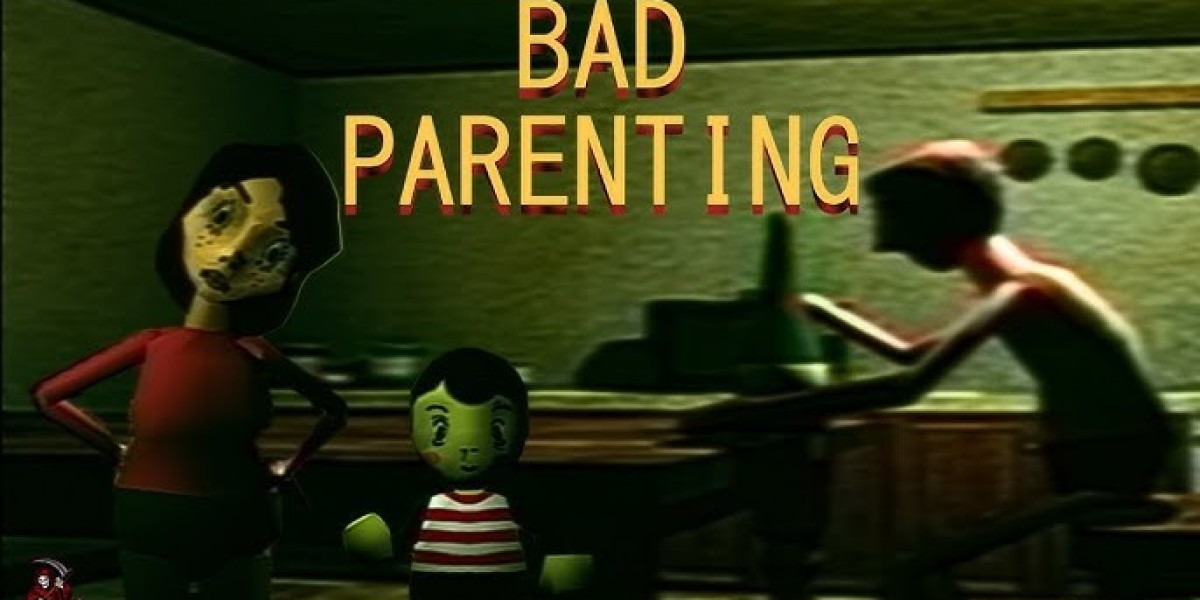There's something strangely satisfying about turning a humble shop into a thriving, chaotic empire. Whether you're slinging sandwiches, stitching shirts, or... well, whatever strange goods your game offers, the core loop of stocking shelves, satisfying customers, and making a profit is endlessly engaging. And if you're looking for a game that takes that loop and cranks the absurdity up to eleven, look no further than Bad Parenting.
This article isn't about turning you into a store management guru. Instead, we'll explore the genre using Bad Parenting as our (slightly deranged) example. We’ll break down the gameplay loop, offer some beginner-friendly tips, and generally talk about why these games are so addictive.
So, what exactly is store management gameplay?
At its heart, store management is about balancing multiple competing needs. You need to:
- Stock your shelves: This is the bread and butter of your business. You need to acquire goods, whether through crafting, buying, or... ethically questionable means.
- Attract customers: No customers, no profit. This often involves marketing, store layout, and simply having the right products.
- Keep customers happy: A happy customer spends more money and tells their friends. A grumpy customer leaves a bad review (in the game, probably a literal rotten tomato).
- Manage your staff (if applicable): Employing staff adds complexity. You need to train them, pay them, and keep them from slacking off.
- Expand and improve: Invest profits to grow your business, adding new products, expanding your store, and upgrading equipment.
That’s the general overview. Now, let’s dive into how this plays out in the wonderfully warped world of Bad Parenting.
Bad Parenting: A Masterclass in Ridiculous Retail
While I can’t tell you every single element of the game to keep the surprises for yourself, the gist of Bad Parenting is running a… unique establishment. I’m intentionally being vague to avoid spoilers, but expect to deal with bizarre products, even more bizarre customers, and a whole lot of morally ambiguous decisions.
Here's how a typical gameplay session might unfold:
Assessment and Stocking: You start by assessing your inventory and deciding what to stock for the day. This means considering customer demand, pricing, and the potential for profit. The goods in Bad Parenting are far from conventional, adding an element of unpredictability. What unholy concoction will the discerning (or perhaps desperate) customer desire today?
Customer Service (of sorts): As customers arrive, you need to cater to their needs. Are they looking for something specific? Are they just browsing? Are they causing a scene? Your choices influence their satisfaction and, ultimately, your bottom line. This is where the "parenting" aspect comes in – do you coddle them, discipline them, or ignore them completely? (Hint: ignoring them might be a valid strategy.)
Resource Management: Every action costs something, whether it's time, money, or sanity. You need to carefully manage your resources to ensure you can keep the business afloat. Do you invest in upgrades, buy more stock, or save up for a rainy day (which, in Bad Parenting, probably involves mutant chickens)?
Growth and Expansion: As you earn profits, you can expand your store, unlock new products, and hire… associates. This allows you to take on more customers and generate even more revenue. But be warned: with growth comes new challenges and even stranger situations.
The key to enjoying Bad Parenting, and really any store management game, is embracing the chaos. Don't expect to be perfect. Expect things to go wrong. Expect customers to do things you never thought possible. It's all part of the fun.
Tips for Surviving (and Thriving) in the Retail Apocalypse
While every game is different, here are a few general tips to help you succeed in the world of store management:
- Pay attention to customer feedback: Customers are your lifeblood. Listen to what they want, and adjust your strategy accordingly. In Bad Parenting, this might involve deciphering their cryptic requests or understanding their unusual motivations.
- Experiment with pricing: Finding the right price point is crucial. Too high, and no one will buy. Too low, and you're leaving money on the table. Don't be afraid to experiment to see what works best.
- Invest wisely: Upgrades and expansions can significantly boost your efficiency and profitability. But choose wisely, as some investments are more effective than others.
- Don't be afraid to fail: Everyone makes mistakes. The key is to learn from them and adapt your strategy. Sometimes, the most fun is in the epic failures, especially in a game like Bad Parenting.
- Embrace the absurdity: Seriously, just go with it. These games are often designed to be silly and over-the-top. Let yourself get caught up in the craziness and enjoy the ride. This is especially true for Bad Parenting, which thrives on its outlandish scenarios.
Conclusion: Why We Love the Retail Grind
Store management games, especially those with a comedic twist like Bad Parenting, offer a unique blend of strategy, resource management, and sheer, unadulterated silliness. They provide a satisfying sense of accomplishment as you build your business from the ground up, even if that business involves selling questionable wares to questionable customers.
So, whether you're a seasoned strategy gamer or just looking for something fun and quirky to play, give a store management game a try. You might just find yourself hooked on the retail grind. And if you're feeling particularly adventurous, dive into the wonderfully weird world of Bad Parenting. Just be prepared for anything. You’ve been warned!






